Search Results
Showing results 141 to 160 of 390
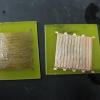
Photolithography
Source Institutions
In this activity, learners use UV light to transfer a pattern onto a plastic board. The pattern is transferred by placing a mask (a transparency sheet with the pattern) on a plastic board.
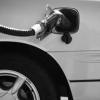
Automotive Emissions and the Greenhouse Effect
Source Institutions
In this activity about global climate change, learners will conduct an experiment and collect data to compare the amount of carbon dioxide (CO2) in four different sources of gases.
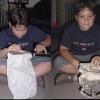
Let's Bag It
Learners observe and discuss a vacuum cleaner as a model of a baghouse, a device used in cleaning industrial air pollution.

Aerogel
Source Institutions
This activity/demo introduces learners to aerogel, a glass nanofoam. Learners discover how aerogel is made and how well it insulates as well as learn about aerogel's other unique properties.
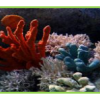
Corals and Chemistry
Source Institutions
In this activity, learners investigate how increased carbon dioxide (CO2) emissions from the burning of fossil fuels is changing the acidity (pH) of the ocean and affecting coral reefs and other marin
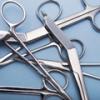
Smooth Operator
Source Institutions
In this activity, learners explore surgical instrument design. Teams of learners construct surgical instruments from everyday materials.

Make a Terrarium
Source Institutions
In this activity, learners make a miniature greenhouse or "terrarium" to explore the greenhouse effect.
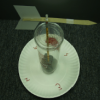
Design and Build a Wind Vane
Source Institutions
In this activity, learners design and build a simple wind vane —one of the oldest kinds of weather tools— and use it to show wind direction.
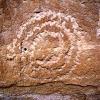
Make Your Own Petroglyph
Source Institutions
In ancient Chaco Canyon, the people used a "sun dagger" petroglyph to mark the passing of seasons.
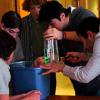
Total Internal Reflection
Source Institutions
In this activity, learners use a laser pointer, empty soda bottle, rubber plug and water to demonstrate total internal reflection.

Biotechnology Through Time
Source Institutions
In this activity, learners investigate the history and development of agricultural biotechnology.
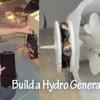
Build Your Own Hydroelectric Generator
Source Institutions
Learners follow directions to construct a water-powered electrical generator using a turbine made from plastic spoons.
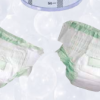
Exploring A Hydrogel
Source Institutions
In this activity on page 10 of the PDF, learners develop an experiment to answer the following question: "How much water can the hydrogel in a baby diaper hold?" Use this activity to explore polymers,
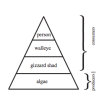
Who Can Harvest a Walleye?
Source Institutions
This activity focuses on interactions within Earth systems and the effects of human activities. In this activity learners build a biomass pyramid.
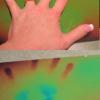
Try Your Hand at Nano
Source Institutions
This lesson focuses on two simple activities that younger learners can do to gain an appreciation of nanotechnology. First, learners measure their hands in nanometers.
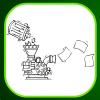
Paper Maker
Source Institutions
Learners make their own paper. They start by shredding old newspaper, clean toilet paper, and clean paper towels.

Help Wanted
Source Institutions
In this interactive board game, learners "hire" different types of scientists to help canine character Ruff Ruffman solve unusual problems.
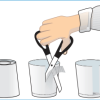
Cleaning Water with Dirt
Source Institutions
In this activity on page 7 of the PDF (Water in Our World), learners make their own water treatment systems for cleaning water.

Fill 'er Up!
Source Institutions
Learners discover that their breath contains carbon dioxide, one of the pollutants found in car exhaust.
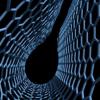
The Power of Graphene
Source Institutions
This lesson focuses on graphene and its electrical properties and applications.
